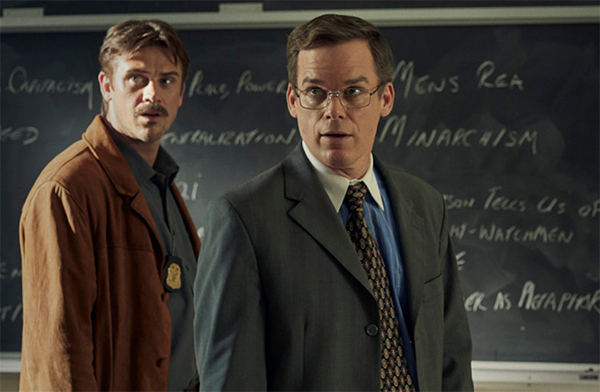The Daily Texan sat down at Fantastic Fest with Jim Mickle, director of Netflix thriller “In the Shadow of the Moon,” to discuss the filmmaking process.
The Daily Texan: As a director, how did you approach the intensive action scenes in the film?
Jim Mickle: By trying to do the action scenes as part of the story. At the beginning, (Rya) runs over the car, and she runs backwards, and her story is “running backwards.” Then (Locke) risks his own safety and the safety of his partner to go through this intersection, you know, to chase (Rya) backwards. (Rya’s) story is that she’s this sort of warrior who is very nimble, and (Locke’s) is sort of burdened by decades, so we put (Locke) in this big, clunky truck. And he has to chase (Rya, who is) on a motorbike where she could fit through doorways that he can’t fit through. So it was always trying to find these thematic and story concepts that make the action scenes spark a little more.
DT: How did you balance the various genre elements throughout the film?
Mickle: Hopefully, the film is still very classy, and I think we maintain that by shooting it in a very classy, stylized, very particular way and then scoring it that way. I love horror. I love action, I love thrillers and I love sci-fi and murder mysteries. (The film wants you to) enjoy these things together. (Combining genres) doesn’t work for me when it feels a bit random and thrown together and not planned for.
DT: What drew you to this project?
Mickle: I read (the script), and I was like, that was kind of awesome. I went back and read it again, and the more you read it, the more you’d find these really interesting sort of character arcs. Sometimes the more you dig into something, the more you realize there’s not much there. This was like the more you dug into it, the more you realize there’s so much there, so you had to pick which lane you wanted to go. So I think that was really fun, to just think like it was always going to surprise you.
DT: What advice would you give to film students?
Mickle: Film school is great. I love film school and what it forces you to do. The way they force you to think is great. At some point you realize, especially in low-budget films, the director is always the least-experienced person. Because for everybody else, it’s their third or fourth (movie set). It’s always the director’s first. I think you start to get a sense of how a day should move and how many shots you should be getting a day and what good communication is like between department heads, and just stuff like that. I think it’s also really helped in being able to talk to people from different departments because I’ve been a part of that. I think people really can tell that.





















